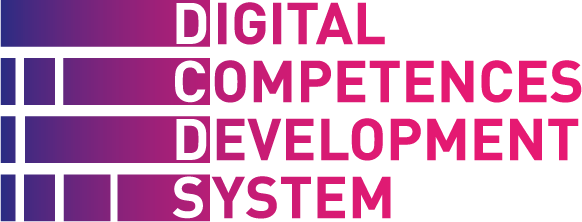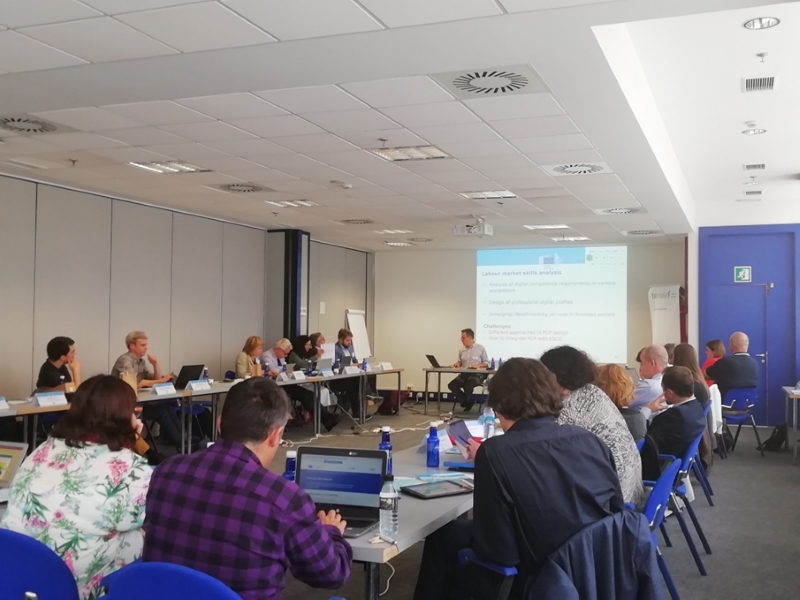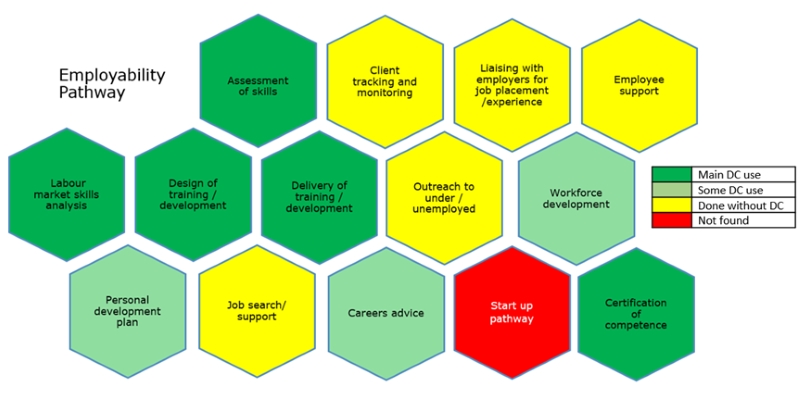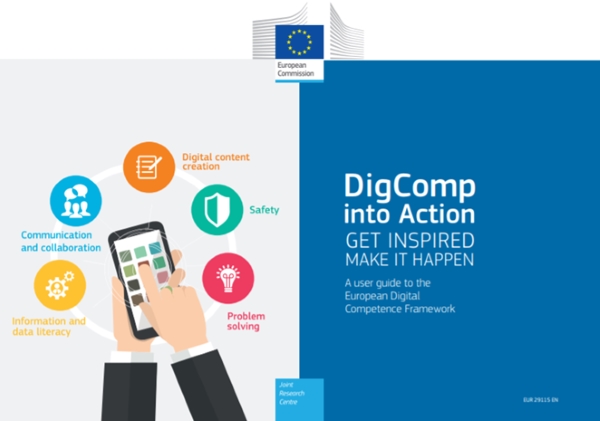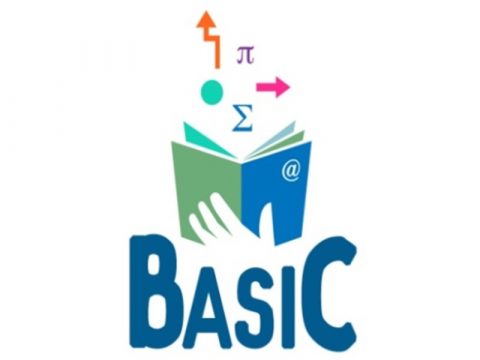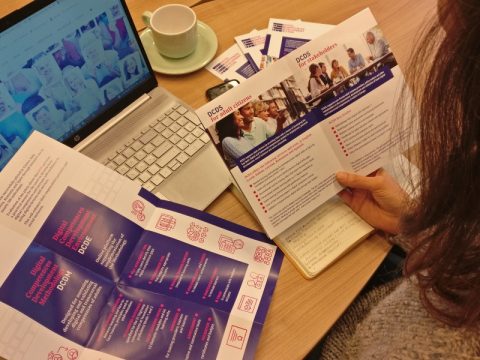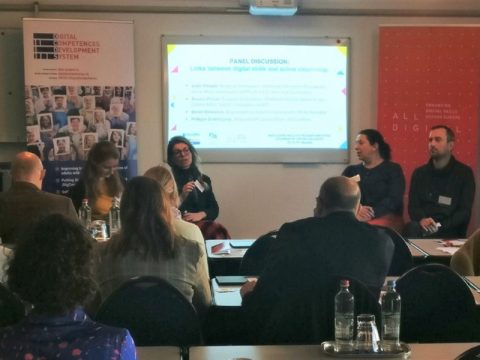DCDS in the “Mapping DigComp and EntreComp use by labour market intermediaries” study of the Joint Research Centre
by Stefano Kluzer
DigComp use for employability
The European Digital Competence Framework for all citizens (DigComp), which inspired DCDS and on which the project’s training offer is based, is used mostly in the education sector, but it is also increasingly used for different employability-related purposes. Digital skills, even of the “soft” type addressed by DigComp are important to successfully search for and get a job; they are expected from candidates when employers recruit new staff; they are part of the competence profiles needed to perform most of the new jobs created by the digital transformation and so on.
Prompted by this awareness and the evidence about usage experiences of DigComp and EntreComp (the European Entrepreneurship Competence Framework) for employability illustrated in the two DigComp and EntreComp Into Action! Guides, the Joint Research Centre (JRC Seville) of the European Commission on request of DG Employment and Social Affairs launched a study in 2018 to characterize the labour market intermediaries (LMIs) actors in Europe, to analyse their role in (up-, re-) skilling functions and their current and potential use of the DigComp and EntreComp frameworks in this context. LMIs is a broad term which includes a wide range of actors who help individuals get into or progress in and into employment: from public and private employment services, to education and training organizations, from job orientation to other consultancy services and, in some respect, business companies and employers in general.
The research “Cases analysis of DigComp and EntreComp use”
As part of the study, between November 2018 and March 2019, The Women´s Organisation Bantani Education and Stefano Kluzer carried out the research contract “Mapping DigComp and EntreComp Use, Lot 2: Cases Analysis of DigComp and EntreComp Use” (number 936054-2018 A08-GB) assigned by the European Commission's Joint Research Centre. The research had to identify and develop about 20 case studies, equally split between DigComp and EntreComp implementations experiences for employability. The case studies (individually or collectively) should try to cover different steps of the so-called employability pathway (see Figure 1) and different EU countries.
Each case study should illustrate the motivations and aims of the experience; how the Frameworks were used; the challenges faced and the benefits from the use of the Frameworks; and should provide suggestions based on the experiences on how to improve the Frameworks and their promotion for a wider use among LMIs in Europe.
DCDS in the AECA case study
The DCDS project was considered along with two other projects carried out in Emilia Romagna (Pane e Internet and 3i) in the AECA case study: one of the 9 DigComp case studies developed for this research. DCDS was included as an example of DigComp implementation for the design of a training offer targeting adult learners with no digital skills, in view of enhancing their employability and broader social inclusion. The AECA case study explains how DigComp was used to specify over 90 learning outcomes across the framework’s 21 competences at foundation level (see the DCDS Methodology). The learning outcomes were then used to design the initial self-assessment test of the DCDS course, and to define and organise the learning materials, exercises and summative tests of the course’s 65 learning units, structured into 19 modules, within the main learning path (Base) and three complementary ones.
Among the challenges faced in this process illustrated in the case study, and due to the specific user profiles of adult learners with no or low digital skills, we can mention the need to establish a progression in the learning process of some DigComp competences, such as 3.4 Programming, 5.3 Creatively using digital technology and other Area 5 competences. In particular, these competences become attainable once a certain amount of digital experience and competence has already been accumulated. They can't easily “fit” in a course aimed at developing digital competence at foundation level only. The solution found was to define as simple as possible learning outcomes for these competences at foundation level and to address their learning in an “optional” path for those who have a specific interest on these aspects.
Other DigComp implementations for employability
As highlighted by the colours of Figure 1, along with the design of digital training offers, as in the DCDS project, the other main purposes for DigComp use by LMIs identified by the research have been:
- labour market skills analysis, when DigComp is used to support the analysis of digital competence requirements in various occupations, often leading to the design of professional digital profiles for both new jobs and existing jobs being transformed by technology and other factors. These profiles typically include DigComp skills, various types of soft skills, and hard IT skills (such as those addressed by the e-Competence Framework, e-CF);
- the assessment and certification of digital competence, when DigComp-based (self-)assessment tools are designed.
Some emerging DigComp implementations for employability, identified by the research, concern the delivery of career and/or further training advice, usually supported by the results of initial tests; personal development and continuous support tools and services; workforce development activities, supported by the aggregation of test results across a whole organisation/company; and benchmarking services in business sectors made possible by the use of a common framework (DigComp) to measure the digital skills strengths and weaknesses of a growing number of organisations.
Research output and the stakeholder consultation workshop
Contributors interviewed for the case studies also expressed ideas and suggestions for the improvement of the Frameworks and for promotion of their wider adoption by LMIs in employability and employment perspectives. These and the general research findings were discussed in the stakeholders' consultation workshop "Developing digital competences for employability: How to engage and support stakeholders and the potential role of DigComp", which took place in Bilbao on 20-21 June, 2019.
The workshop was organised by the European Commission (JRC Seville) with the support of Basque Country government (Ikanos project). It was attended by about 50 participants: representatives of all the 9 DigComp case studies and other stakeholders, including several All Digital members. During the workshop, Stefano Kluzer illustrated the DigComp cases studies, including of course the DCDS project. The workshop's presentations, discussion and results are published on the Ikanos website.
